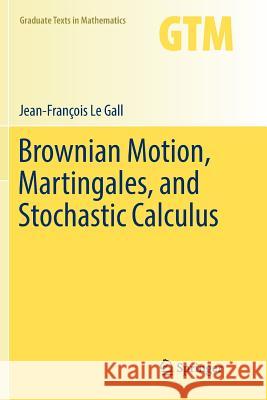Brownian Motion, Martingales, and Stochastic Calculus » książka
topmenu
Brownian Motion, Martingales, and Stochastic Calculus
ISBN-13: 9783319809618 / Angielski / Miękka / 2018 / 273 str.
Kategorie:
Kategorie BISAC:
Wydawca:
Springer
Seria wydawnicza:
Język:
Angielski
ISBN-13:
9783319809618
Rok wydania:
2018
Wydanie:
Softcover Repri
Ilość stron:
273
Waga:
0.41 kg
Wymiary:
23.39 x 15.6 x 1.55
Oprawa:
Miękka
Wolumenów:
01
Dodatkowe informacje:
Wydanie ilustrowane











